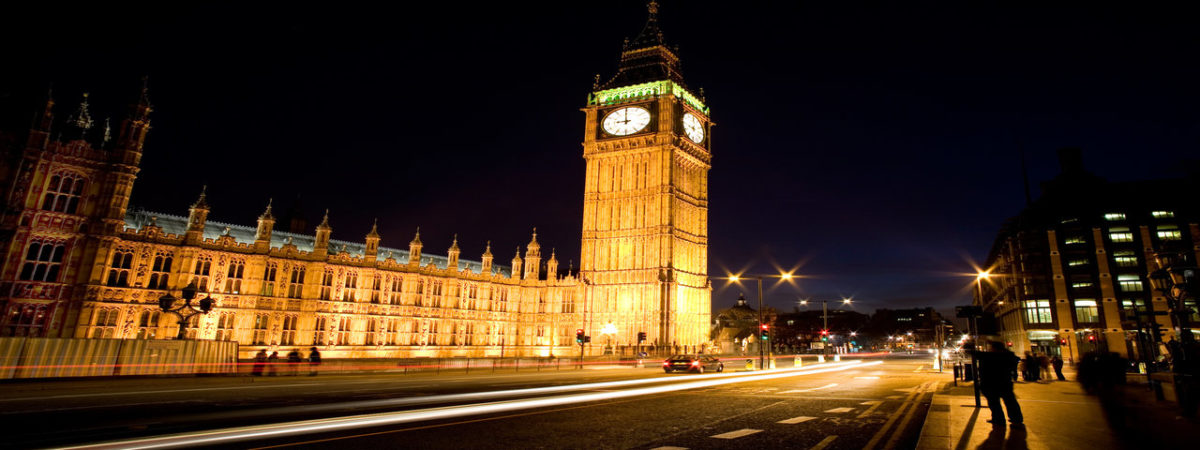The nexus of economic freedom and religious freedom
SUGGESTED



Particular concerns among Catholics included life issues, of course. Many people voted against Hillary Clinton despite disagreeing strongly with Trump’s personal behaviour among women or with his views on globalisation.
Another issue which no doubt motivated a large number of people was that of the threat to religious liberty and freedom of association coming from legislation and court judgments. America has had its fair share of controversies in relation to Catholic adoption agencies and the right of people to sell products to whomsoever they like.
As the spotlight turns to elections and political developments in Europe, the question is whether such issues will dominate here sufficiently to change the outcome of elections, perhaps leading to victory for candidates who otherwise have unpalatable views.
Indeed, the threats to religious liberty and freedom of association are arguably greater in Europe than they are in the US. Three cases illustrate the problem.
In the first, which has been widely reported, a Northern Irish couple who manage a cake shop were asked to bake a cake for a gay person. They did not actually know the purchaser was gay. They were asked to put on the cake the slogan “Support Gay Marriage”. After discussion within the family firm, the customer was told that the order could not be fulfilled.
The judges stated quite clearly that the couple’s action was direct discrimination against gay people. This was so even though they did not know the purchaser was gay and despite the fact that same-sex marriage is not legal in Northern Ireland. In other words, the law is such that people are required to bake cakes with public policy messages on them.
The “gay cake” case not only imposes duties on people who own a business that they may not wish to fulfil, it also undermines the relationship between a person and their work. Christian thinking about work promotes the idea that it is something that should be offered up to God; it should be sanctified. It is not simply a series of activities. Even atheists must surely realise that the personal fulfilment that comes from being creative through work is something that should be treasured, and not undermined by requiring people to do work they believe to be morally wrong and advocate a message they oppose.
The second, rather similar, case relates to a care home in Belgium. A Catholic nursing home was fined £5,000 for refusing to allow doctors to come to the nursing home to give a lethal injection to one of the patients.
The judge said: “The nursing home had no right to refuse euthanasia on the basis of conscientious objection.” Thus the care home was not allowed to act in accordance with the conscience of its owners and is now forced by law to collaborate with actions its owners believe to be evil. A possible result of this case will be the closure of all Catholic care homes in Belgium.
In other words, the Belgian courts have turned euthanasia into a right, so that all care homes have a correlative duty in law to facilitate euthanasia. This ruling attacks both freedom of conscience and freedom of association. Pluralism is also diminished. It is not possible to have a variety of care homes, with some not providing euthanasia and others providing it, and with people choosing in advance which care home they prefer, according to their values.
In case it is thought that common sense will prevail and Catholic care homes in Belgium will not close down, we should consider what has happened to Catholic adoption centres in Britain in the past 15 years.
Here, several Acts of Parliament have been passed that have gradually given same-sex couples and individual gay people greater freedoms and subsequently positive rights.
In 2007, the right for same-sex couples to adopt children came into force: Catholic adoption agencies were then obliged to arrange such adoptions. Eleven Catholic adoption agencies with histories stretching back to the 1850s closed down. Before 1850, Catholic adoption agencies had been banned because they were Catholic. After 2010, they were banned because they wished to uphold the teaching of the Church. It is a new slant on the term “no popery here”, but the effect is just the same.
So why have these threats to liberty come about? They have arisen as a result of the emphasis which, since the 1960s, has been put on enshrining particular rights in legislation rather than simply using the law and the courts to promote general freedoms.
The problem with a politics that is based on rights and not freedoms is that rights conflict. The freedom to swing my fist stops at the end of your nose. Contracts, property rights, tort law, common law and the criminal law are quite sufficient for regulating a society that is based on freedom.
But once positive rights are the main governing principle, such rights can clash. My right to run a care home conflicts with your right to get access to euthanasia any way, any place, any time. The right of an atheist not to be offended by having quotations from the Bible shouted over a loudhailer conflicts with somebody else’s right to free speech and to the practice of their religion. And so on.
In the end, we need ever-more complex law to adjudicate these conflicts; and law becomes not the result of the wise application of enduring principles, as was the now effectively defunct English common law. Rather, it results from a struggle between interest groups all trying to assert their rights.
The reaction to the Trump victory has shown that the self-styled liberal elite is anything but liberal. It will not countenance reasoned disagreement with its view, which is becoming ever more enshrined in law, that its particular brand of liberalism should prevail and all have to dance to that tune.
In the 19th century, we had many firms with Christian foundations that led the way in terms of providing good customer service, treating employees well and developing wider institutions within civil society. We are now in the position where the Christian owners or managers of small businesses must act against their conscience or close their business, even where no harm has been done to anybody.
Ultimately, this threat to liberty affects the right to work and the fabric of civil society. The reaction against the purported rights that are being promoted is one factor among many that is putting together coalitions of voters who support Trump, Marine Le Pen and others.
It is important that all who truly believe in liberty stand up for freedom of association and freedom of religion to ensure that it is a platform adopted by all politicians – including those in the mainstream. How have we got to the point where only mavericks will stand up for values that were once fundamental to British society?
This article was first published in the Catholic Herald.
1 thought on “The nexus of economic freedom and religious freedom”
Comments are closed.





thanks. good share.